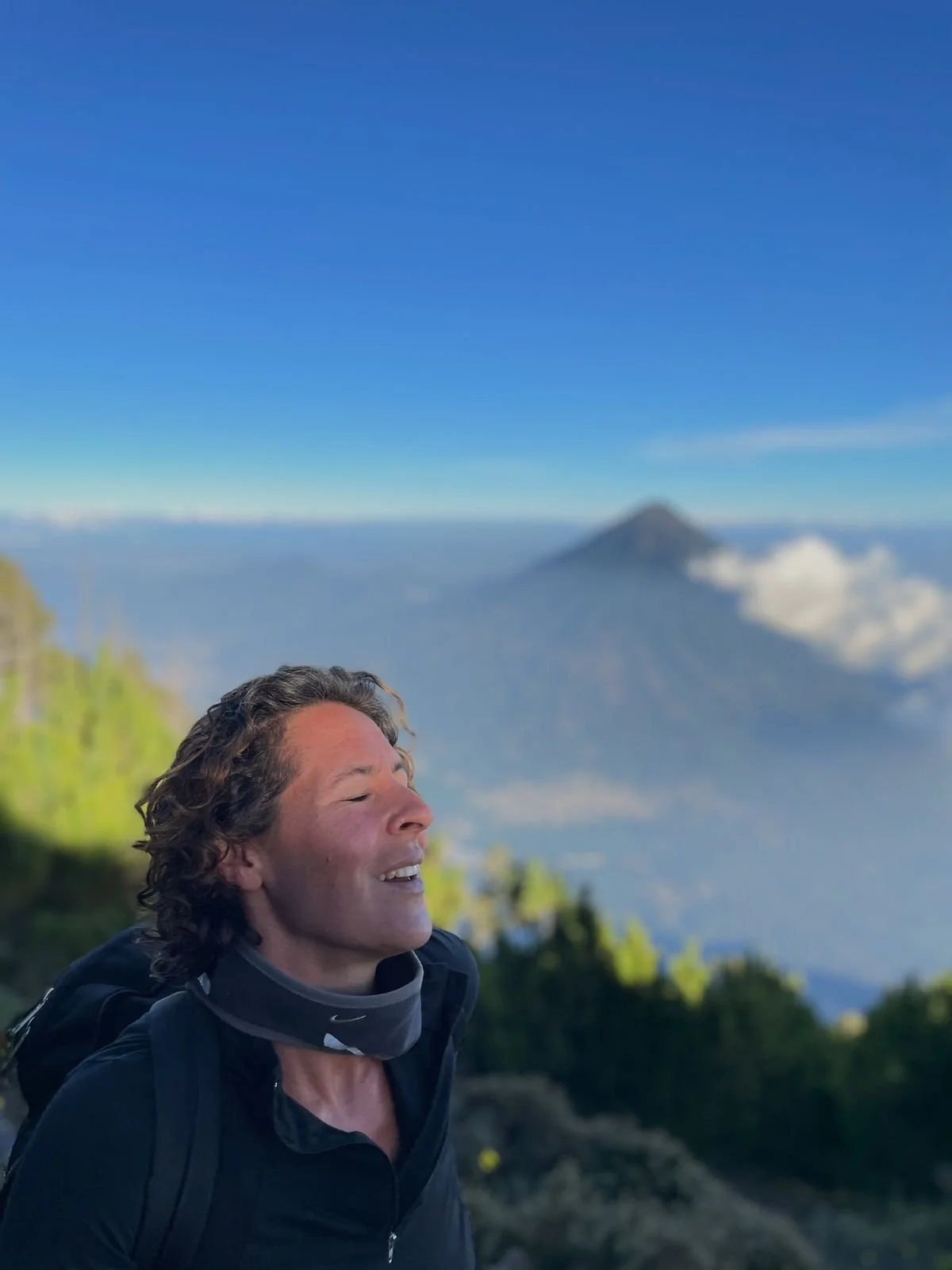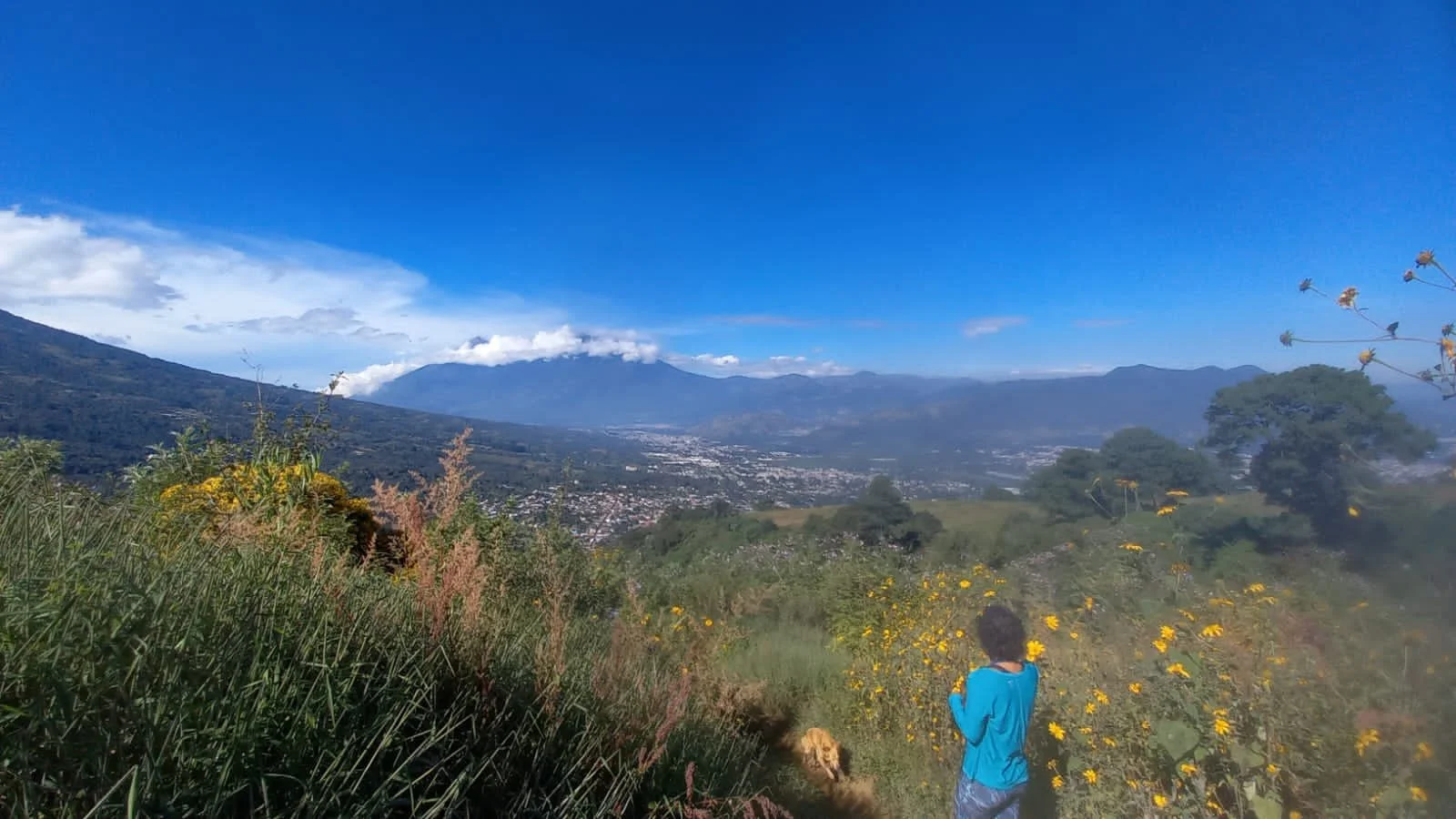The Benefits of Walking
When the pandemic began, I discovered one of the great loves of my life: hiking. Growing up in New York City, I always appreciated the simple act of putting one foot in front of the other. My legs were my favorite mode of transportation. I've always enjoyed the sensation of moving my body. But when the pandemic hit, I needed the peace and movement that I could only get from walks in nature. What started as brief loops around the neighboring coffee plantation soon became hikes leading to the summit of the nearby mountain.
I felt exhilarated by my sweat, the heat, panoramic views, and the rhythm of my body's motion. I craved – needed - the elevation and the fatigue that settled into my thighs as I climbed. My hiking ritual became a necessary part of my daily routine. While I still practiced yoga, my daily workout evolved into ascending "my" mountain.
During trips or vacations, finding a substitute for my habitual walks or climbs became a necessity. When visiting family in NYC, I would skip the elevator to ensure I got my climb in.
My hikes became inextricably linked to my well-being. Scientifically, we understand that exercise prompts the brain to release 'feel-good' chemicals such as endorphins and serotonin, which bolster mood. It also improves your fitness, an integral component of an elevated mood. Physical activity can also distract you from negative thought patterns. Research has shown that even a short burst of brisk walking lasting only 10 minutes increases our mental alertness, energy, and positive mood. Consistent engagement in physical activity contributes to heightened self-esteem and decreased stress and anxiety. It also plays a role in the prevention and alleviation of mental health challenges, thus enhancing the quality of life for individuals facing such difficulties.
I somehow knew that hiking was healing, that extended beyond the effects of exercise, but I didn't know why… Here is the why:
I always remember the cute adjunct professor from my graduate school days, who shared the story of his sister, clinically depressed, who made running 3 miles daily a cornerstone of her strategy to stave off her depression. For her, this regimen proved to be the most reliable to feel balanced and healthy. This was over 20 years ago, way ahead of the curve regarding the intricate connection between body and mind.
Consequently, I view my daily hikes as my way to self-regulate, creating optimal conditions for maintaining mental stability and ideal functioning.
Physical activity emerges as the single most efficient strategy to complete the stress response cycle, recalibrating the central nervous system into a calm state.
Walking even holds the power to diminish anxiety from a neurological standpoint…
While walking, you engage in optic flow - visual motion that you experience as you move through the world- causing your eyes to look from side to side. This lateral eye movement has been shown to deactivate the amygdala, a brain region central to processing fear. This is because lateral eye movements activate the dorsal frontoparietal network (a network involved in sustained attention, complex problem-solving, and working memory). This network competes with the amygdala for cognitive resources, thus reducing anxiety. Meaning: the visual motion that you experience while walking pulls the brain away from the fear centers automatically. YOU DON’T HAVE TO DO ANYTHING FOR THIS RELEASE!
In the same way that acute stress impairs executive function – you find it hard to concentrate on problem-solving when you're stressed, experiments show that deactivation of the amygdala can enhance extinction learning, meaning that you can gradually decrease the fear response and have enduring effects.
When our brain circuitry interprets our movement through space, we get a sense of relaxation. Optical flow, represented by the movement of objects past us as we walk, dampens circuits responsible for stress.
Diminished Stress and Anxiety: Walking can reduce stress and anxiety by releasing endorphins and reducing the production of cortisol, a stress hormone.
Improved Mood: Walking has been shown to improve mood and reduce symptoms of depression.
Enhanced Cognitive Function: Walking can improve cognitive function, including memory, attention, and decision-making.
Increased Brain Function: Walking stimulates increased blood flow to the brain, promoting the growth of new neurons and improving brain function.
Reduced Inflammation: Walking can reduce inflammation throughout the body, which is linked to numerous health conditions.
Improved Sleep: Walking positively affects sleep quality and duration, pivotal for overall health and well-being.
Balanced Hormones: Walking can help balance hormones, such as insulin, which can reduce the risk of diabetes and other metabolic disorders.
Throughout the ages, philosophers, writers, poets, and thinkers have recognized that walking offers the added advantage of time and space for creative endeavors. Nietzsche famously said, "It is only ideas gained from walking that have any worth."
Are you interested in working on your personal development? Are you looking for a life coach or a life consultant? Are you feeling stagnant? Do you want to jumpstart change?
My transformational approach is a process where awareness, alignment, and action work together as catalysts to create momentum for change.
*Awareness is knowing what you genuinely want and need.
*Alignment is the symmetry between our values and our actions. It means our inner and outer worlds match.
*Action is when you are conscious that what you say, do and think are in harmony with your values.
Together we build an understanding of what you want to accomplish, and delve deeply into building awareness around any thoughts and assumptions that you may already have. To truly transform your life, I will empower you to rethink what’s possible for you.
__
Learn more about my approach to life consulting and relationship coaching here or get in touch for your free 30-minute consultation here! Don’t forget to follow along @LilyManne on social for more regular updates!


